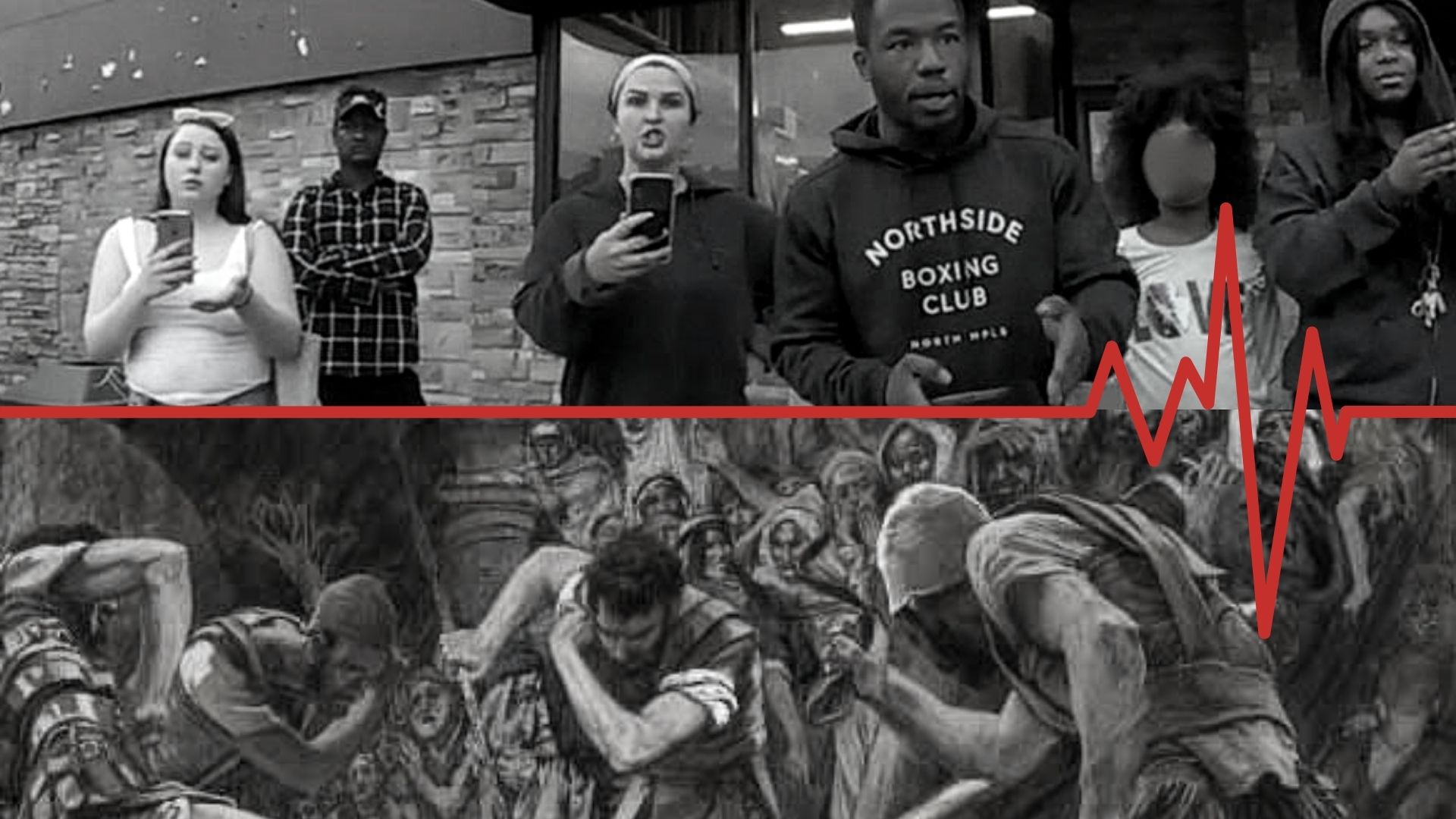A man lies in a street, struggling for life as the authorities usher him to death. Onlookers are horrified, begging for him to be spared, doing their best to help, and wanting to render aid, all the while knowing that there is nothing that will deter the officials and stop the man from dying.
For Christians, this is Holy Week.
And during this Holy Week, America has been riveted by the testimony in the trial of Derek Chauvin, the police officer who kneeled on the neck of George Floyd until Mr. Floyd breathed his last.
I’ve watched most of the witnesses — from the 9-year old girl to 61-year old Charles McMillian who broke down on the stand. With each tearful testimony, I think of what happened on that street in Minneapolis, as regular people watched heartless authorities while a man died unjustly.
And I remember what happened on a street in Jerusalem two millennia ago.
On his last day, political authorities condemned Jesus to death, and tradition holds that Roman soldiers paraded the prisoner through the streets of Jerusalem to the place of his execution. The path they followed is known as the Via Dolorosa, the “sorrowful way” or the “way of sorrows.” The way is one of the most sacred pilgrimages of Christian practice — a route retraced on Good Friday in Jerusalem and at churches around the world in a ritual known as the Stations of the Cross.
As is rightly so, the stations focus on Jesus and his suffering. But this year, I am thinking of the suffering of the witnesses. The trial in Minneapolis has me reflecting on the trauma of the crowd, what those who watched a man tortured in the streets felt knowing that the one before them would soon die. The witnesses. Having been to the market, out for a walk, waiting for a bus. What would it have been like to be on one’s daily rounds only to encounter a scene of violence and death?
Of course, I’m not making a direct theological comparison between George Floyd and Jesus. But, like the writer I am, I see the world poetically, impressionistically. The witnesses in Jerusalem did not know anything about what would become Christian doctrine — about a sinless man carrying the sins of the world. All they knew was that the brutal Romans were at it again. The imperial police were torturing a man who was most likely innocent as they forced him through city streets to his death. Some may have turned their heads, not wanting to see the same scene again, having witnessed far too many victims taken down this very route toward the same end. Others might have been horrified by the whipping, the cold cruelty of the Roman soldiers. A few reached out to offer comfort, to plead with the executioners for mercy.
The crowd. Their resignation, their fear, their sadness, their compassion. The crowd hated the Romans, those pressing their knees into the collective neck of an oppressed people. And the crowd knew that no matter how much they begged for Jesus’s life, his story would end the in same way that hundreds had before him. Torture, blood, execution. The sorrowful way, this imperial route of violence, wended to Golgotha, the place of the skull. They could plead. And he would still die. “You can’t win!,” as Charles McMillian centuries later yelled to George Floyd, “You’re done.” Murdered by the state.
READ: Easter Encouragement for the Spiritually Homeless
Look at the faces of the crowd. If you’ve ever walked the Stations of the Cross, you’ll recognize their stories.
In Minneapolis, off-duty firefighter Genevieve Hansen was like St. Veronica as her attempts to care were like a cloth to George Floyd’s face; Darnella Franzier held her camera as steadily and courageously as St. Simon of Cyrene carried Jesus’s cross; the unnamed 9-year old becomes one of the tearful children of the Women of Jerusalem; and Charles McMillian’s parental sorrow mirrored the resigned grief of Mother Mary. The stories are too close, too real — the tale of violence told and re-told through centuries when domination systems assert their will forcing all to submit to their power. It is humankind’s oldest, most gruesome story.
This week, we are reminded that the trauma of oppressive systems isn’t borne only by its most direct victims. Imperial violence spreads from the knee on the neck and the cross on the back of individual sufferers to the bystanders, the witnesses, others on the way. Here we see the powerful truth — those on sidewalks become casualties as well.
In a world of injustice, our faces become scarred by the suffering of every innocent victim.
Good Friday is, of course, about Jesus’s way of sorrow. Yet his suffering extends to the crowd, to the multitudes of humankind who have been forced to witness the cruelty of empire. It is worth remembering that Christianity was birthed in the trauma of witness, not the glory of power. Its founder, heroes, and saints are always the ones lying in the streets.
We cry out for healing, for freedom. A different way. A way of peace and love.
This piece first appeared on dianabutlerbass.substack.com.

